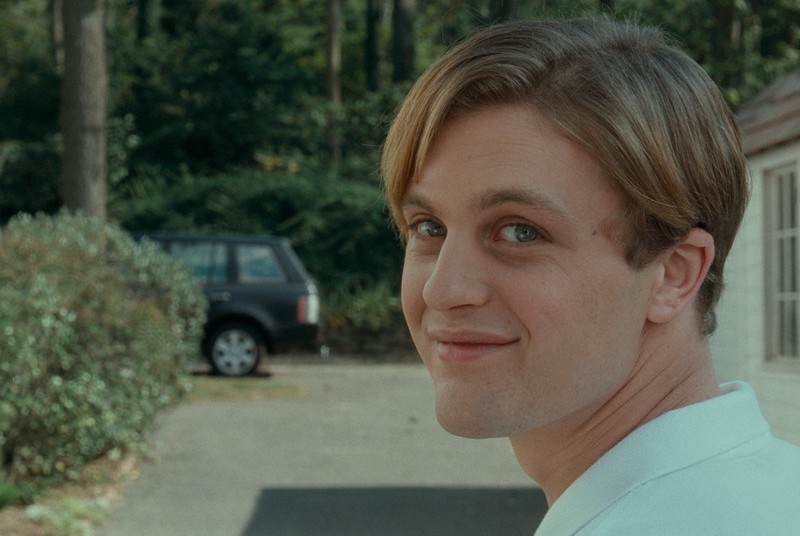Culture
Smash Cut: Funny Games

Even though I might say that I “hate” a number of things—like marzipan or Kate Hudson—few things in life do I really, truly loathe. It’s easier and studies show you live longer when you don’t get irrationally angry at everything all the time. However, I hold a special place on the list of Reasons to Shorten My Life Span With Blind Hatred for Michael Haneke’s 2008 film Funny Games. Although I would not call Funny Games the worst movie I’ve ever seen, it is by far the one I dislike the most, and holds the honor of being the only movie has made me so personally angry that I cried afterward. The film isn’t bad in the classical way of being poorly, acted, directed or shot. The performances are flawless (especially from the perennially overlooked Naomi Watts), and Michael Haneke is nothing if not a modern auteur. There’s never a single question as to whether he is in control of the action, story or narrative, and maybe that’s part of the problem.
This movie lives in the Lars von Trier universe of terrible films, where a movie may be perfectly executed, but in the service of something that is so vile, evil or utterly insane that you could never possibly recommend it to another human being. For instance, the end of von Trier’s Dogville is supposed to ask us searing moral questions about violence, about whether we can still sympathize with a protagonist who has committed unforgivable crimes. However, because of what the audience may know about Lars von Trier’s personal politics and savage anti-Americanism, the ending comes off as an endorsement of the violence he means to question.
In the same way, Funny Games shows a very confused commitment to its central thesis. Like Lars von Trier, Haneke means to critique the bloodlust of American cinematic torture porn by presenting a film that’s so vile that you will have no choice but to walk out of it. Critics took Haneke to task for this assertion, because such a raison d’etre makes Funny Games into less of a film than a stunt, a master’s thesis that’s no more than a high-minded version of Jackass. And I personally find that desire to create a film that I loathe to be an utter waste of time, especially considering that the film is a shot-by-shot remake of a movie that he already made in Austria. Why waste so much time on making me hate something? Isn’t there enough trash in the world already? To his credit, he did succeed. I loathe your film, Mr. Haneke. Good work.
On top of that, I think the art house milieu of the film reflects a failure of nerve on the part of the director. Although I disagree with the existence of the film in general, he should have remade it as a big studio picture if he really wanted to commit to that idea. He should have cast a name starlet as the lead (see: Jessicas Biel or Alba) and marketed it at the teen demographic that actually goes to see torture porn films. By making the film for a demographic that doesn’t see “those movies”—as art house theatres are mostly populated by middle-aged NPR listeners and hip college kids—you’re punishing the wrong audience. You are attempting to persuade someone that already agrees that the Hostel and the Saw films are bad. It would be like making the intentionally making the most horrific, pandering, offensive romantic-comedy known to man, but then marketing it as this year’s biggest testosterone fest. When the mostly-male audience walks into the theatre expecting The Expendables 2—que sorpresa!—you throw on Sex and the City 2 and lock the doors.
By subjecting the wrong audience to this torture—because Funny Games, if anything, is one of the most objectionable films I’ve ever seen—the movie comes off just as pretentious and contemptuous, like his von Trierian forebears. But of what, exactly? The object of Haneke’s critique in the film is the central family, who represent a certain type of American middle class values. They buy their cat expensive pet food and only drink soy milk, and the camera lingers over these details, as if they were just as worthy of derision as the torture porn genre itself. When they are all listening to classical music at the beginning of the film, Haneke throws on a dirge of ear-splitting grindcore music over it, his soundtrack blotting out their bourgeois tastes, a precursor to his treatment of them throughout the rest of the film.
Congratulations, America. Michael Haneke hates you, hates your films and hates your milk, and we rewarded him by not paying him to hate us. Funny Games made just over a million dollars in the theatres, less than 1/70 of what John Carter has grossed domestically. It turns out that Haneke was at least right about something: If you make a movie this hideous, people will stay as far away as possible.
This is literally one of my favorite movies
I like it because the film is not real. It’s a movie. And that all it ever tries to be, is a movie. It forces you to remember, THIS IS FAKE. But it plays on your habit of personalizing film– the symbolism of the family.
It’s a fun and mental, so long as you just remember, its only a movie.